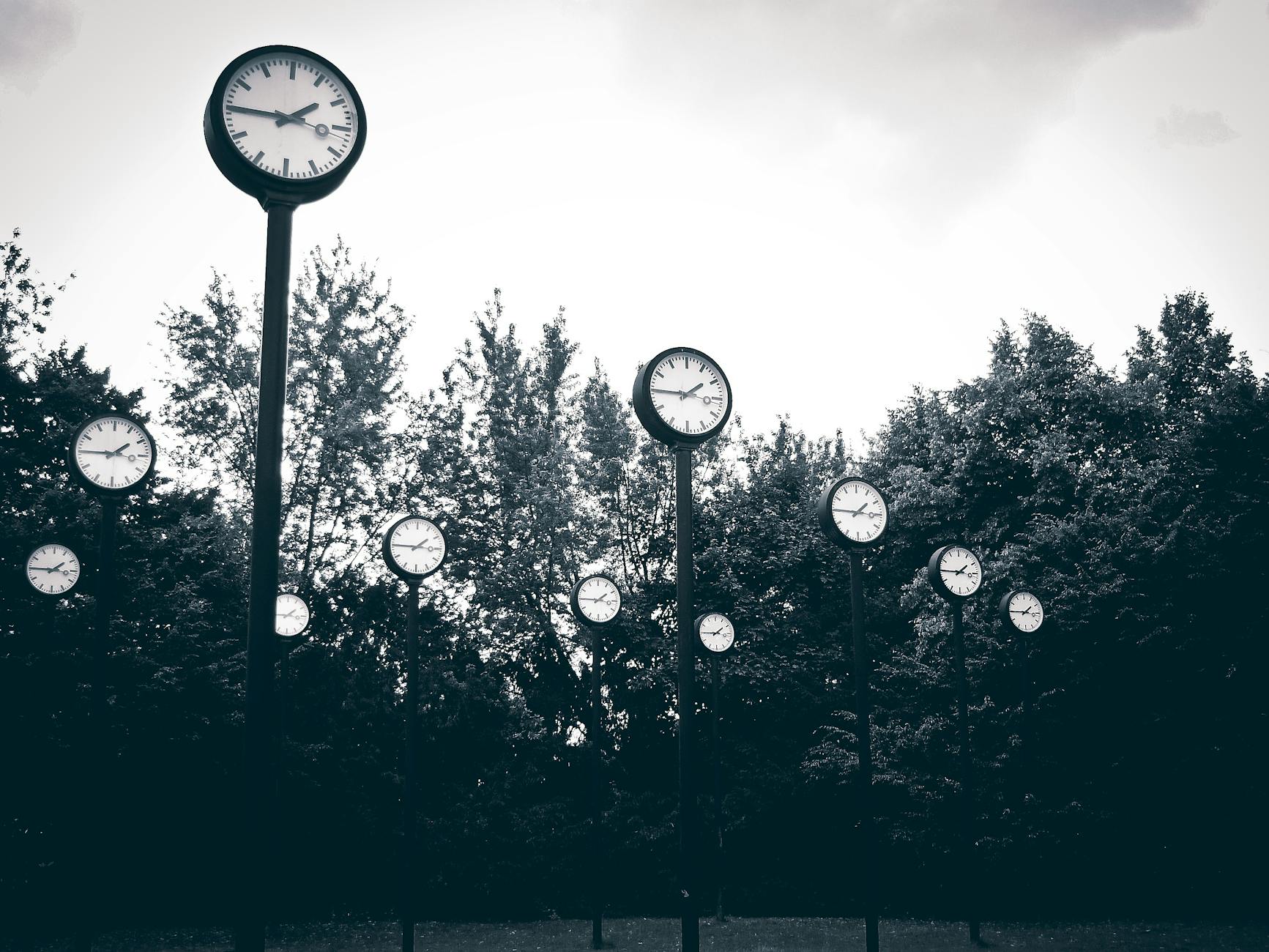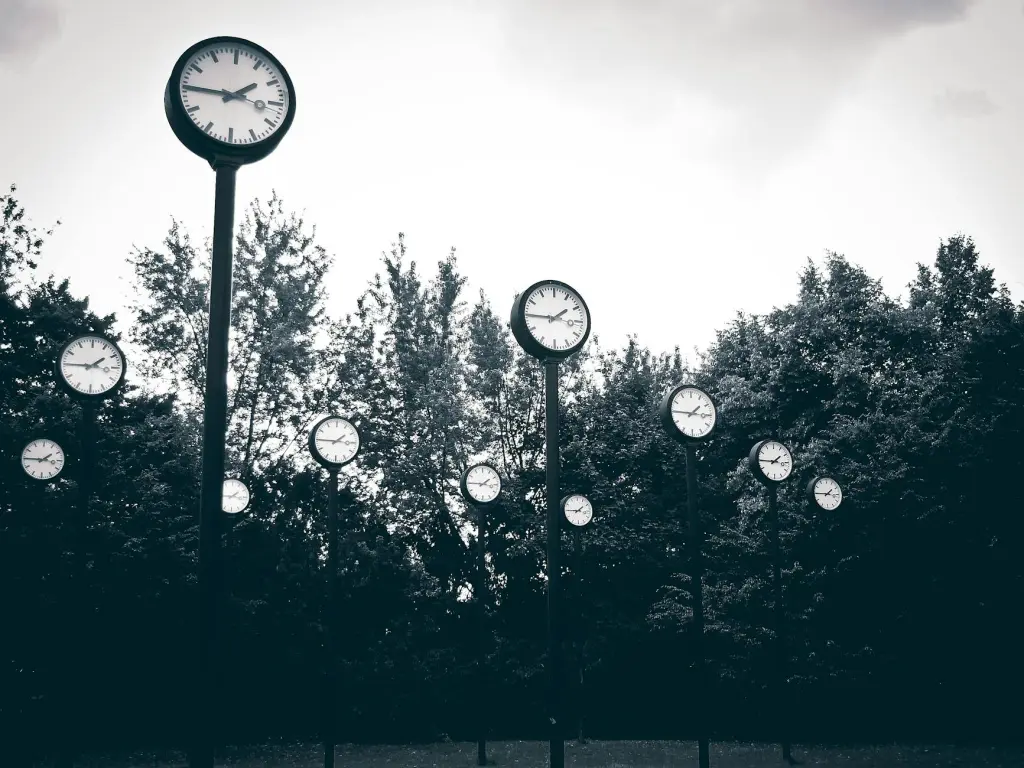by Luisa Santos

Photo by Pixabay on Pexels.com
Emily Dickinson is notorious for mentioning time in her poetry. Whether that be the passage of time, mortality, or the concept of eternity; it seems as though the poet spent much of her life trying to understand the nature of it. Her poetry becomes a thematic attempt to capture a moment forever, a meditation on time itself. She often presents it as a complex and mysterious force, challenging all conventional notions of linear progression. Some readers may misunderstand Dickinson’s treatment of time by attempting to interpret it in a straightforward or literal manner, which I would argue, isn’t what she intended. Dickinson, whenever she mentions time, is talking about how it presents itself in our brains: non-linear, relative, and emotionally abstract.
Take for instance the obvious example, her lyrical poem, Because I could not stop for Death. This poem is, from my experience, the most referenced Dickinson poem when talking about the theme of time. She personifies time— death in this case— and actively makes him a character in which we too must long to understand. In the superficial sense, we need to understand his role in the narrative of the poem by pure interpretive instinct; I would argue that this is why the poem “works” for so many people. Dickinson had an interpersonal relationship with time and death herself.
She spent so many years in solitude, by herself in her room, and her most prominent thoughts became the main figures in her life in which she most interacted with. Death in her poem doesn’t behave how we might expect him to. He is “kind” and “civil,” and instead of coming solely to mark the end of Dickinson’s life, he takes her for a ride. While I believe this poem to be one of her least confusing concerning time, it can also be easy to misinterpret Death’s role in the poem. This poem is not Dickinson imagining the moments before her death and how they might occur. Rather, it is a retelling of one of her many deliberations over her own mortality. As they “slowly drove” together, they passed countless living experiences, probably her own at the “the School, where Children strove,” and “the Fields of Gazing Grain.” However, they did so from the inside of the carriage: a removed, third-eye point of view.
This is one of the many geniuses of Dickinson. She uses the observative third place she creates in the carriage as a metaphor for how our brains perceive time retrospectively. When we think back to moments throughout our lives, we are forced to do so from a third-person perspective. We can never go back and actually be there experiencing them. These moments are effectively “dead,” unless we visit them through our minds. This speaks to Dickinson’s use of non-linear, abstract time because she wastes no time outlining a narrative which we see regularly in our daily lives, in our calendars, in our schedules, and on the clock.
She fully leans into the time that we are most subconsciously familiar with: the time in our brains that doesn’t work in straight lines. The end of this poem is one of my favorites, but it is so bittersweet because Dickinson reveals to us a somber realization: that the “Horses’ Heads” aren’t towards eternity, like she “first surmised.” This is a painfully reflective point for Dickinson, revealing that this self-awareness of time that she has gained through her introspection and poetry isn’t second nature. As humans, we tend to get so caught up in all of life’s situations and tasks that we forget the limited, and often uncertain nature of the time. Thoughts, memories, and moments become tangled in a complex web that is our brain, and our moving seconds become almost invisible underneath our egos. It is easy to forget that we aren’t immortal. Dickinson reserves space at the end of the poem to remind us.
Another poem that would be impossible for me not to mention when talking about Dickinson’s unconventional portrayal of time would be Forever – is composed of Nows—. This is not just one of my absolute favorite Dickinson pieces, it is a timeless lesson on living in the moment. This poem is beautiful because it captures an immensely curious part of the human condition. That is, our ability to be self-aware of time in retrospect, while simultaneously forgetting about it through all the things we create to label, define, and put it into a digestible box.
Dickinson talks about “dates,” “months,” and “celebrated days,” all these man-made concepts. She diminishes their importance by zooming out of the daily life, and looking at time from a bird’s-eye point of view. Unlike the previous poem, Dickinson zooms out further than just her own lifetime. She says in the final lines of the poem: “No different Our Years would be From Anno Dominies.” Here, Dickinson makes the subtle argument that our time here on Earth is but a slight blip in eternity. All the things we “invent,” so to speak, during our lives to pass time are trivial and minute in the grander scheme of things. I am careful not to say that she means “nothing matters,” because I feel like that holds a rather nihilistic connotation.
However, in essence, I believe she is saying precisely that. I imagine Dickinson rolling her head back on her neck and breathing out a lighthearted sigh at the end of this poem, relieved to spend her time on Earth however she pleases, perhaps even feeling sorry for the people caught up in their artificial antics. Dickinson was, in her time, deemed an unconventional woman. I would argue that even today people would categorize her this way. Her critical understanding of moving time, our lifespans, and eternity as something greater, all-consuming of everything we make up as humans to understand it better, gives her power in her poems. This way, her apparent abstractions of time become more genuine expressions about how relative and wavering time can seem throughout our lives and inside our brains, as our understanding of it shifts and changes with every moving second. Dickinson is truly a historian of the human spirit.

Luisa Santos is a junior at FSU majoring in Creative Writing and serves as an editorial assistant for The Kudzu Review’s poetry section. She loves getting into heated, passionate debates about poetry and runs her own poetry blog where she focuses on free verse!
Want to read more? Check out our most recent posts below!






Leave a comment